The new VLA Sky Survey (VLASS) sharpens the view. Here is the same radio-emitting object as seen, from left to right, with the NRAO VLA Sky Survey (NVSS), the FIRST Survey, and the VLASS. The VLASS image, unlike the others, allows astronomers to positively identify the image as jets of material propelled outward from the center of a galaxy that also is seen in the visible-light Sloan Digital Sky Survey. Technical data: NVSS image at 1.4 GHz in VLA’s D configuration; FIRST image at 1.4 GHz in B configuration; VLASS image at 3 GHz in B configuration.
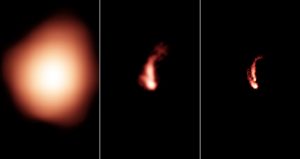
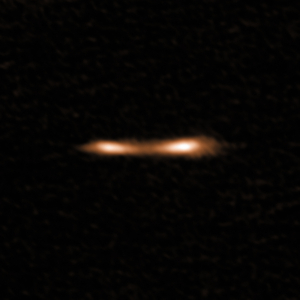
A Cosmic Eyelash Reveals New Information on Star Formation
This ALMA image shows the Cosmic Eyelash, a remote starburst galaxy that appears double and brightened by gravitational lensing. ALMA has been used to detect turbulent reservoirs of cold gas surrounding this and other distant starburst galaxies. By detecting CH+ for the first time in the distant Universe, this research opens up a new window of exploration into a critical epoch of star formation.
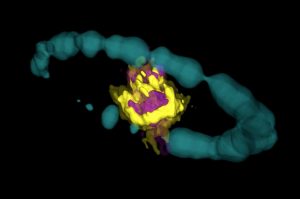
Heart of an Exploded Star Observed in 3-D
Remnant of Supernova 1987A as seen by ALMA. Purple area indicates emission from SiO molecules. Yellow area is emission from CO molecules. The blue ring is Hubble data that has been artificially expanded into 3-D.
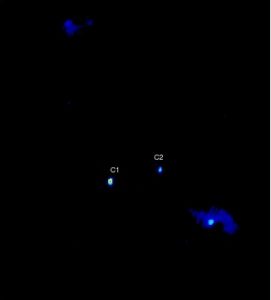
VLBA Reveals First-Ever Black Hole “Visual Binary”
VLBA image of the central region of the galaxy 0402+379, showing the two cores, labeled C1 and C2, identified as a pair of supermassive black holes in orbit around each other.
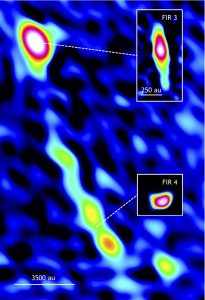
Star’s Birth May Have Triggered Another Star Birth
Protostar FIR 3 (HOPS 370) with outflow that may have triggered the formation of younger protostar FIR 4 (HOPS 108), in the Orion star-forming region. Pullouts are individual VLA images of each protostar. (au = astronomical unit, the distance from the Earth to the Sun, about 93 million miles.)
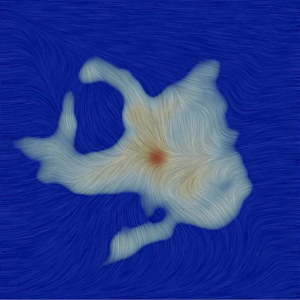
The Magnetic Field of Ser-emb 8
Texture represents the magnetic field orientation in the region surrounding the Ser-emb 8 protostar, as measured by ALMA. The gray region is the millimeter wavelength dust emission.





